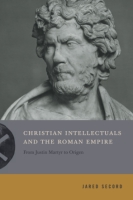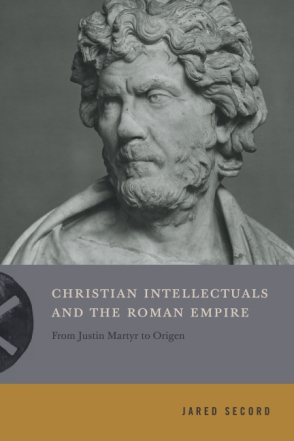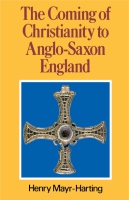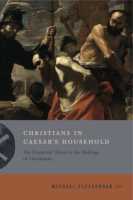Christian Intellectuals and the Roman Empire
From Justin Martyr to Origen
Jared Secord
“This book is a welcome addition to a growing movement by classicists and ancient historians to examine early Christian authors within the horizons of Roman imperial culture (the so-called Second Sophistic). Secord brings to the task an unusually strong command of the scholarship and the Christian texts, married to a firm grasp of the history and non-Christian intellectual trends of the first three centuries CE. Scholars who work with equal comfort on both sides of the pagan-Christian divide are rare; this is a book that scholars in both disciplines will read with profit.”
- Description
- Reviews
- Bio
- Table of Contents
- Sample Chapters
- Subjects
With the recognition that Christian authors were deeply engaged with the norms and realities of Roman intellectual culture, Secord examines the thought of a succession of Christian literati that includes Justin Martyr, Tatian, Julius Africanus, and Origen, comparing each to a diverse selection of his non-Christian contemporaries. Reassessing Justin’s apologetic works, Secord reveals Christian views on martyrdom to be less distinctive than previously believed. He shows that Tatian’s views on Greek culture informed his reception by Christians as a heretic. Finally, he suggests that the successes experienced by Africanus and Origen in the third century emerged as consequences not of any change in attitude toward Christianity by imperial authorities but of a larger shift in intellectual culture and imperial policies under the Severan dynasty.
Original and erudite, this volume demonstrates how distorting the myopic focus on Christianity as a religion has been in previous attempts to explain the growth and success of the Christian movement. It will stimulate new research in the study of early Christianity, classical studies, and Roman history.
“This book is a welcome addition to a growing movement by classicists and ancient historians to examine early Christian authors within the horizons of Roman imperial culture (the so-called Second Sophistic). Secord brings to the task an unusually strong command of the scholarship and the Christian texts, married to a firm grasp of the history and non-Christian intellectual trends of the first three centuries CE. Scholars who work with equal comfort on both sides of the pagan-Christian divide are rare; this is a book that scholars in both disciplines will read with profit.”
“An impressively erudite work, which may prove to be seminal. Secord makes use of a huge range of both classical and Christian texts, many of which are not widely cited in scholarly literature. The copious prosopographic information is genuinely illuminating, and he rightly observes that Christians were not conforming to the times but joining a dissident trend when they styled themselves philosophers.”
“Christian Intellectuals in the Roman Empire is an engaging and valuable study. Secord succeeds in demonstrating how several key early Christian thinkers participated in the competitive culture of Roman intellectuals, and his contribution surely helps to overcome the traditional exclusion of Christians from the intellectual history of the Greco-Roman world.”
“In this valuable and stimulating work, Jared Secord argues that Christianity was not the most important consideration when a Christian intellectual interacted with non-Christians, particularly imperial authority.”
Jared Secord is an academic strategist at the University of Calgary.
Preface and Acknowledgments
List of Abbreviations
Introduction
1. Emperors, Intellectuals, and the World of the Roman Empire
2. Justin Martyr: A Would-Be Public Intellectual
3. Tatian Versus the Greeks: Diversity in Christian Intellectual Culture
4. Christian Intellectuals and Cultural Change in the Third Century
Conclusion
Notes
Bibliography
Index
Download a PDF sample chapter here: Introduction
Also of Interest
Mailing List
Subscribe to our mailing list and be notified about new titles, journals and catalogs.






